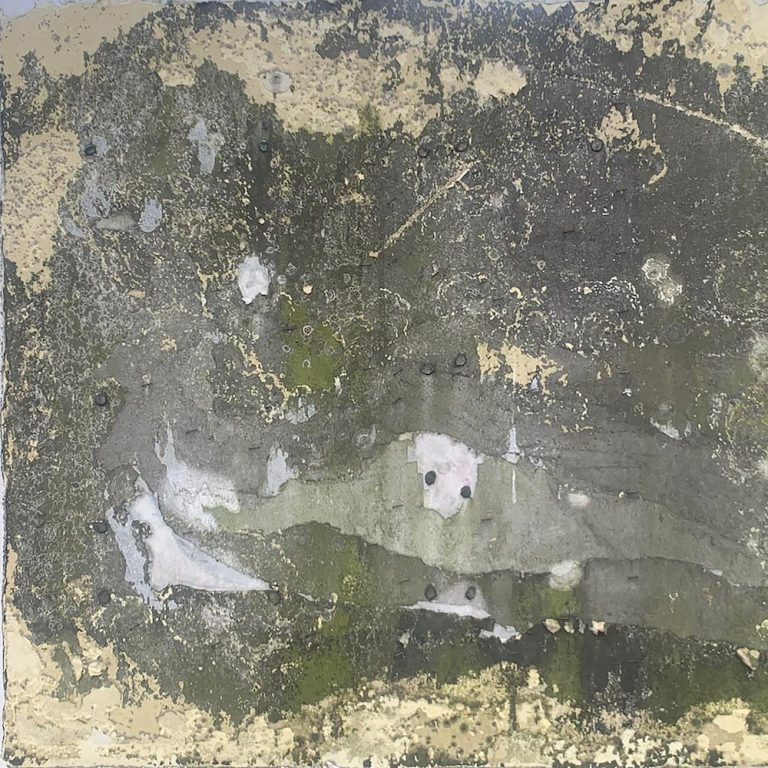There’s a world of music underneath the one we exist in. It’s filled to the brim with discarded equipment – busted 8-track players, blown out speakers (some even with a shoe from Kurt Cobain), microphones with the grille frayed, amps that reek of cigarettes and alcohol, and various other abandoned relics.
It’s in these junkyards of the damned that you’ll find Stephen Lawrie combing through the rubbish heaps to find the perfect materials for Experimental Health, the 14th album by his long-running psychedelic shoegaze band The Telescopes.
Formed in the mid-80s with the late David Fitzgerald and Joanna Doran, The Telescopes – and more specifically Lawrie, who has been the only constant member – have tempered their sound repeatedly, furiously even, until the latest iteration that began with 2015’s Hidden Fields barely resembles what the original band was on 1989’s Taste.
Created entirely by himself in a cottage out in West Yorkshire, Experimental Health is the next step in evolution for The Telescopes. As described in the liner notes it was made with no guitars, only broken toys and cheap synths – the same ones he likely dumpster dived for, just to find the most battered electronics he could find.
This refreshed sound for Lawrie’s been gestating for quite some time. He’s dabbled in dream pop before, but over the course of the last half decade the Telescopes have been retooled as something much more invigorating.
The last we’d heard from them on 2021’s under-sung masterpiece Songs of Love and Revolution, Lawrie was behind metallic curtains pulsing with sonic stings, like when you touch your tongue to a battery. The mastering of the album concealed him, but he sings a different tune, several in fact, this go-round.
Not entirely without the seductive tones of previous work, Experimental Health mostly doles out candied gems, some of the band’s most infectious songs in recent memory. But when Lawrie does go delirious, like on “When I Hear the Sound” and repeats “don’t fuck with me” conjoined with blitzed synths, a sense of preservation befalls one, he appears cutthroat for the first time, maniacal even.
When opener “Because They Care” comes into focus, so does Lawrie despite his isolated disposition during the making of Experimental Health. “There is no sense / in this pretense / our common sense / In passing tense” he drones with an unusual clarity to his words – less mumbled than ever before giving a sense that Lawrie’s stepping out from that cold visage he masked for years.
By the time “The Turns” kicks in, it’s apparent that The Telescopes of new, when firmly in the hands of an auteur like Lawrie, can accomplish some amazing things. With its midi-tracked liners, buzzing lo-fidelity hums, sickly sweet synths no doubt provided by a junked replica of the Cosmic Key from Masters of the Universe, “The Turns” resembles an inter-planetary carnival of orgies reaching multiple climaxes at once to the sound of Lawrie singing “Live while you can / and live all over.” This isn’t a horny album by any means, it’s merely an arousal of senses, and something Lawrie intricately planted in the album’s core.
The twisty words of “Leave Nobody Behind” commands an identity crisis for Lawrie, one minute singing the words he likely scrawled on crusty drywall “Leave nobody behind” to “leave my body behind,” as he hopes to depart this wasteland. These hyper-driven melodies are shockingly welcome after the wintery mix felt on Songs of Love and Revolution. Lawrie once stated that “your idea of perfection changes as you move on,” in response to the new approach they engaged with on their second album The Telescopes way back in 1992. “I think we still hold the same approach to our music now, we still try just as many mad ideas, it’s just a lot more subtle and works to a different end.”
Experimental Health is still very much a product of The Telescopes and Lawrie’s malevolent psyche. The dry “Repetitive Brain Injury” monotone interplay with beats and synths is just as devilishly cathartic as anything from Third Wave or #4, so the drive of the band is still intact, Lawrie’s purely dissecting what we’ve come to know and enjoy about the Telescopes and adding new elements to the DNA.
Once we reach “The Turns Again” to close out the album with its haunting outro, it’s become apparent that this listening experience is just the beginning. Lawrie’s tempted us with this stunning project, and now that we’ve had a taste, we’ll be ravenous for more.
Lawrie’s passion for the project seems unflinching, if anything Experimental Health proves there’s a lot more to come from The Telescopes as they follow the trend of late-career booms by the likes of Yo La Tengo, Swans and Low. It may have taken nearly 20 years since its resurrection, but Lawrie’s exploring new dimensions with his band that are far and wide; a subtle yet severe departure from its beginnings.

